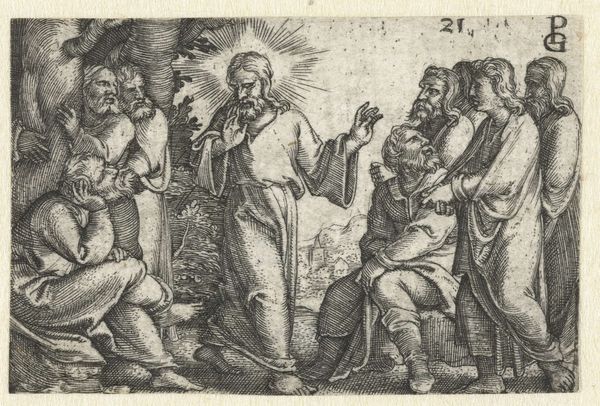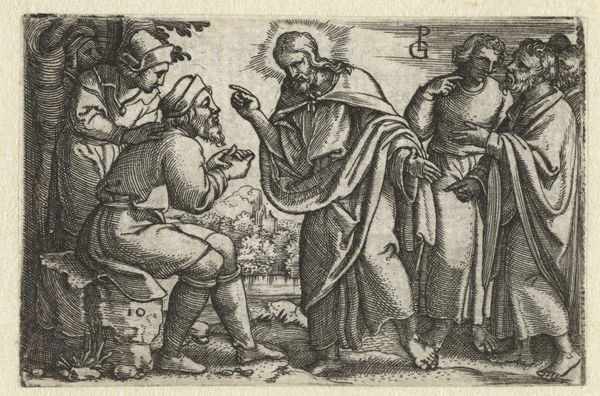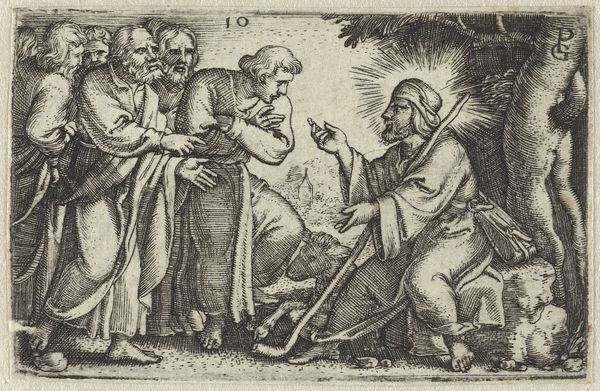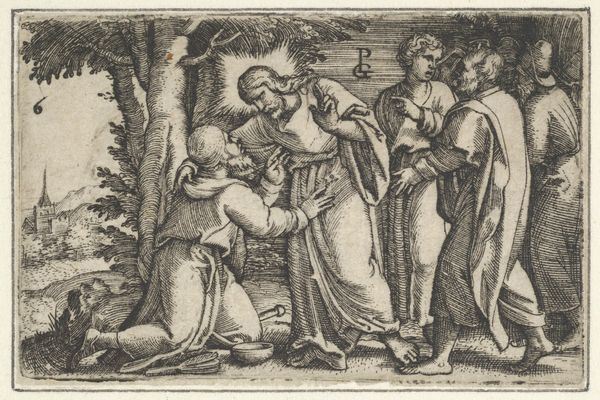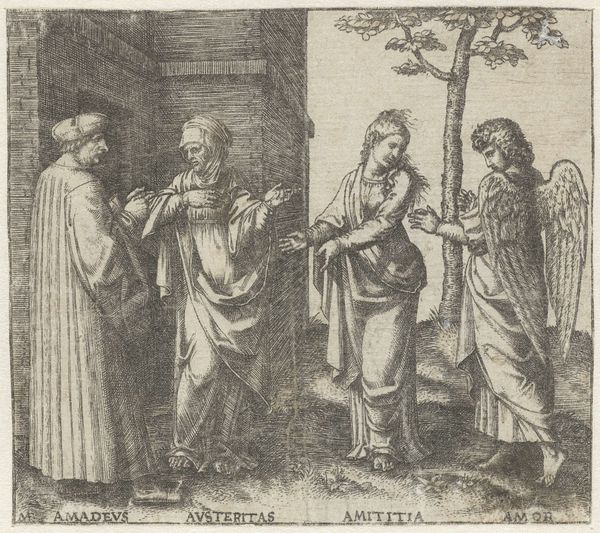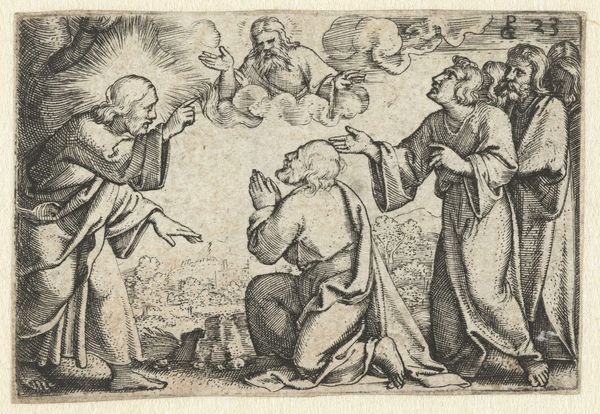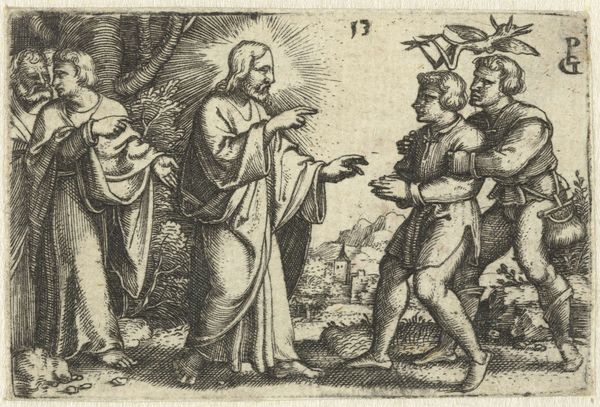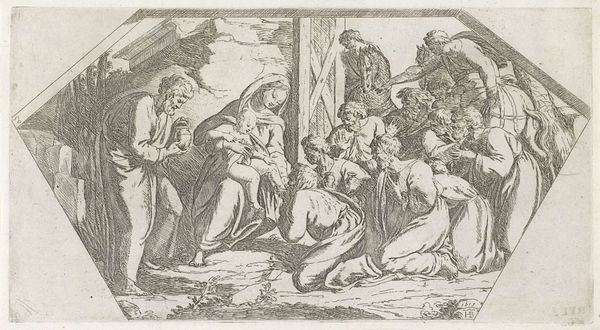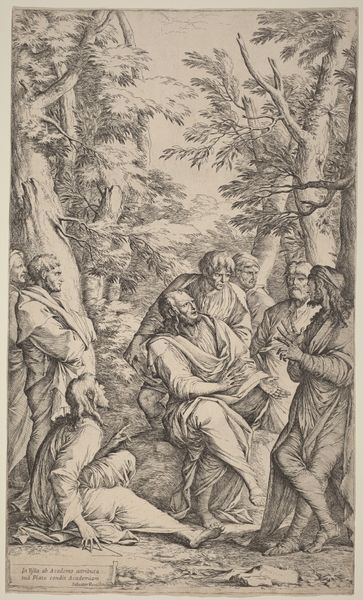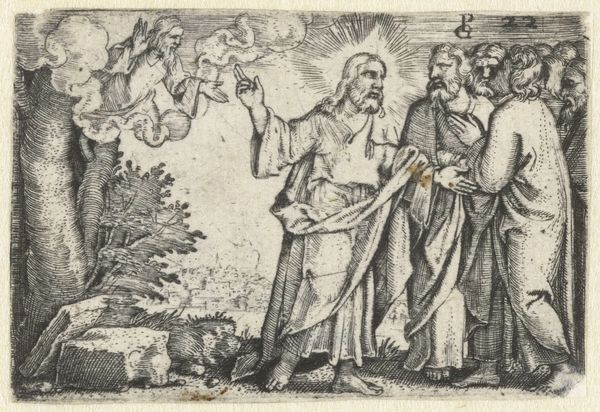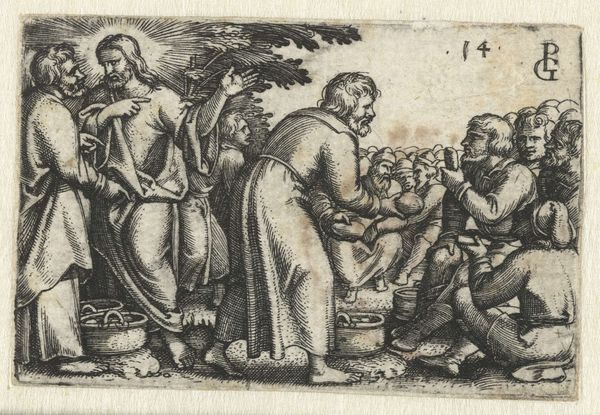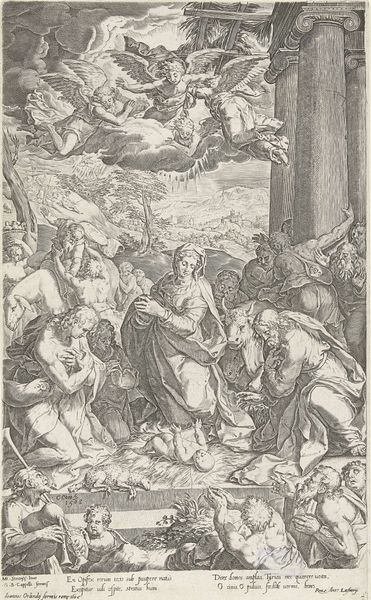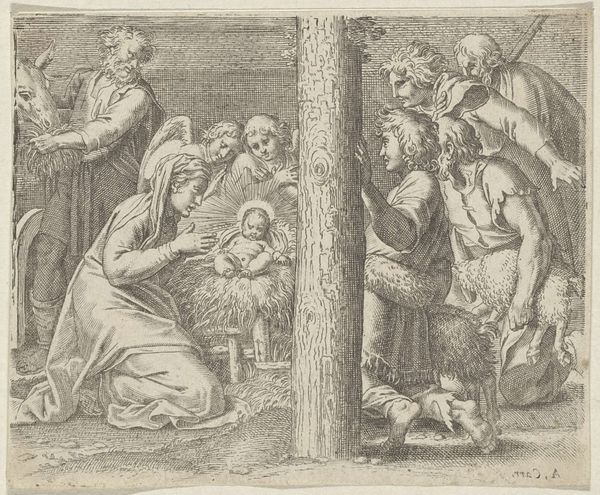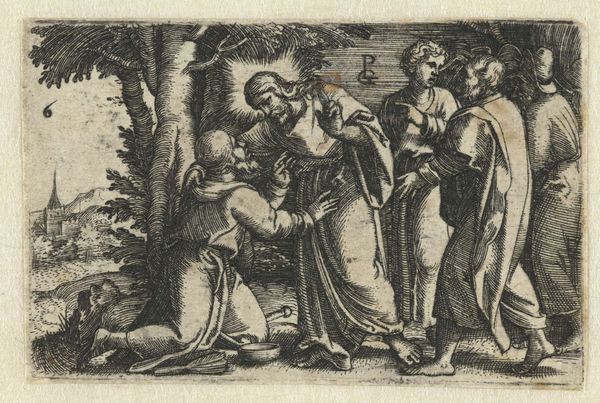
print, engraving
# print
#
figuration
#
history-painting
#
northern-renaissance
#
engraving
Dimensions: height 38 mm, width 58 mm
Copyright: Rijks Museum: Open Domain
Georg Pencz created this print, *Christ Healing the Woman with an Issue of Blood*, using engraving techniques sometime in the first half of the 16th century. The engraving process involves using a tool called a burin to carve lines directly into a metal plate, typically copper. The plate is then inked, and the ink wiped away, remaining only in the incised lines. When paper is pressed against the plate, the image is transferred. Look closely, and you can see the crisp, precise lines that define the figures and the landscape. The act of engraving demands careful planning and skillful execution, with each line contributing to the overall composition and the illusion of depth. This was a laborious process, crucial to the wider distribution of imagery during the Reformation. Prints like these were more accessible than paintings, allowing for wider consumption. So, next time you look at a print, consider the labor, skill, and social context embedded within its very lines.
Comments
No comments
Be the first to comment and join the conversation on the ultimate creative platform.
